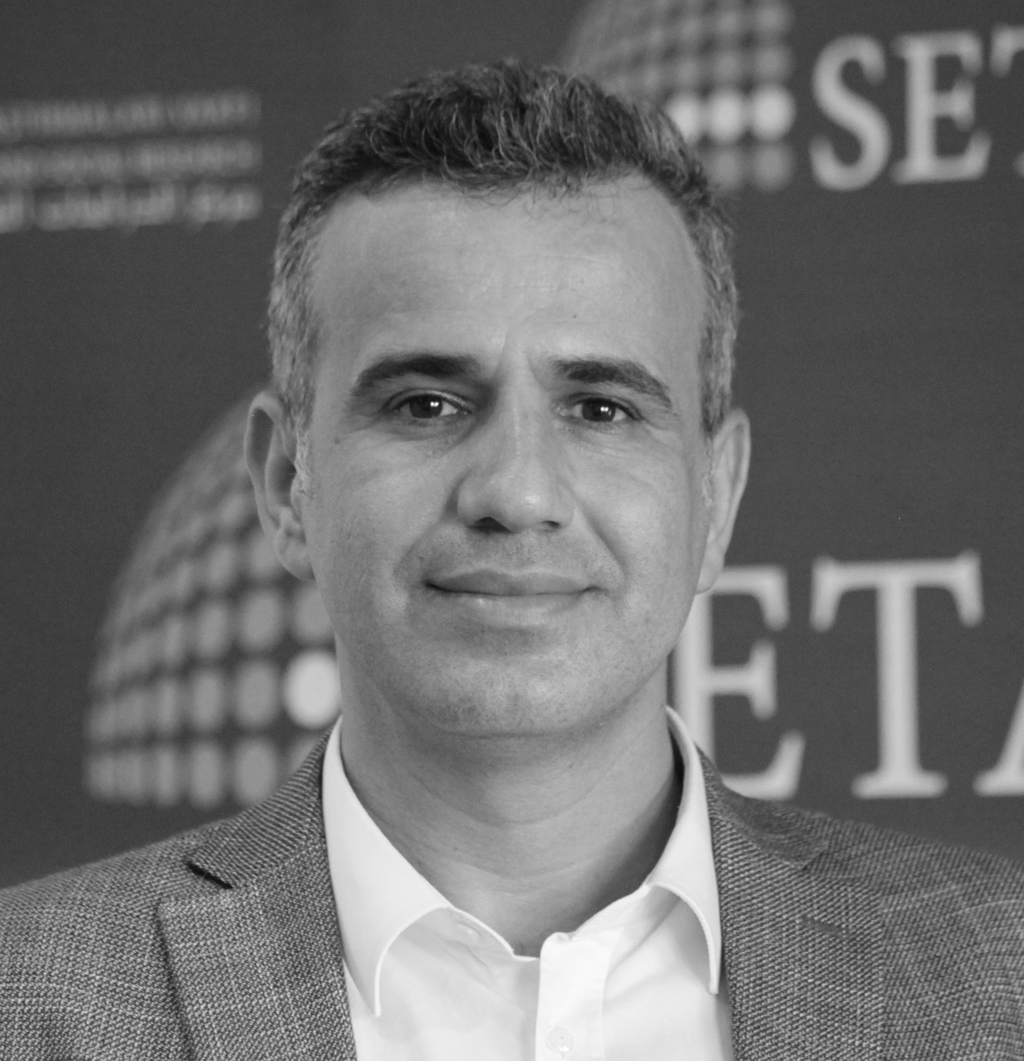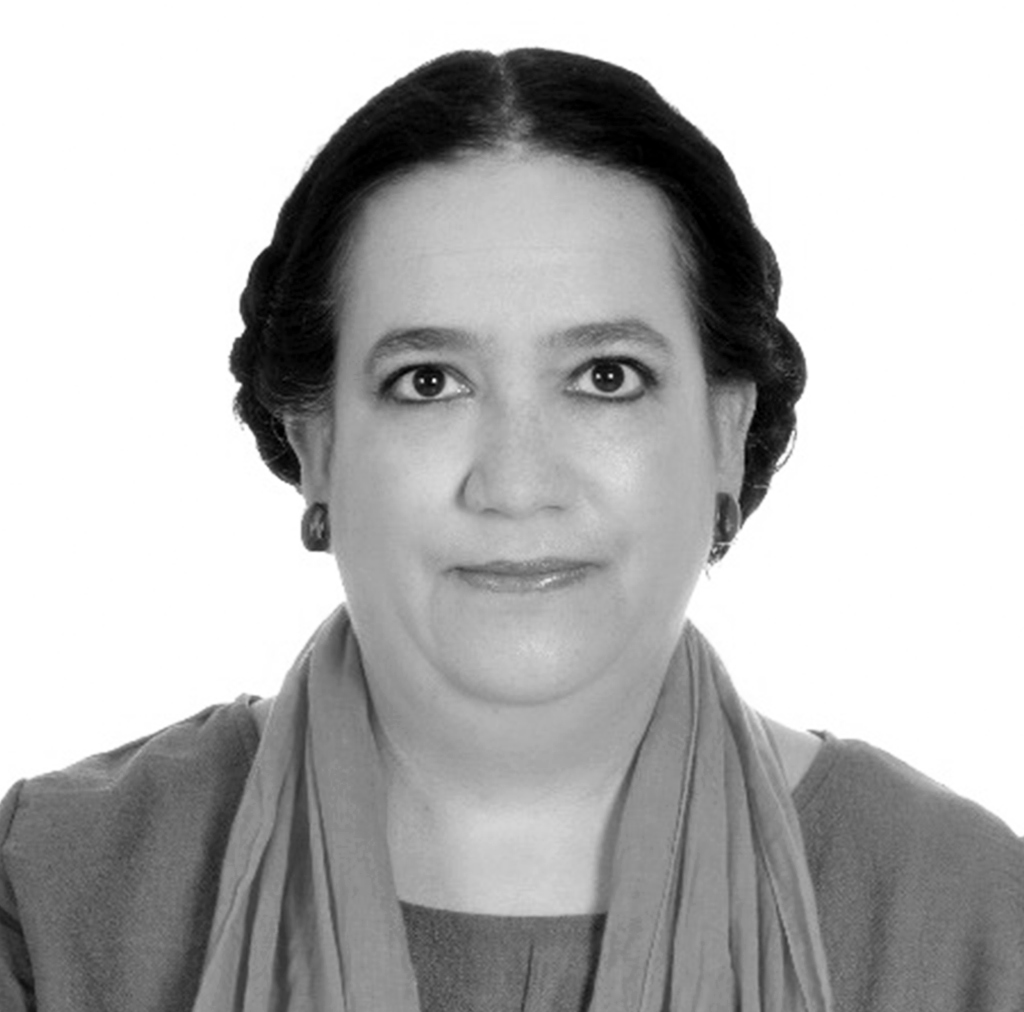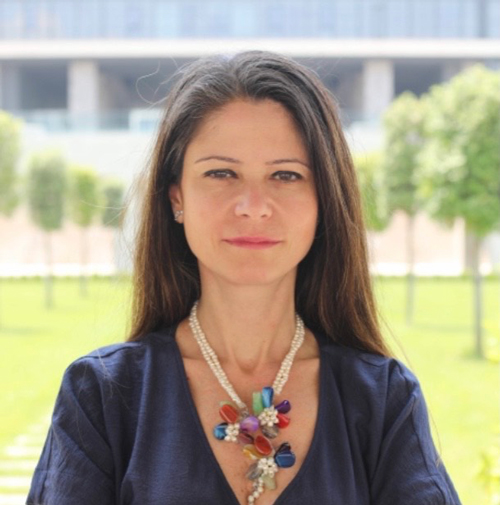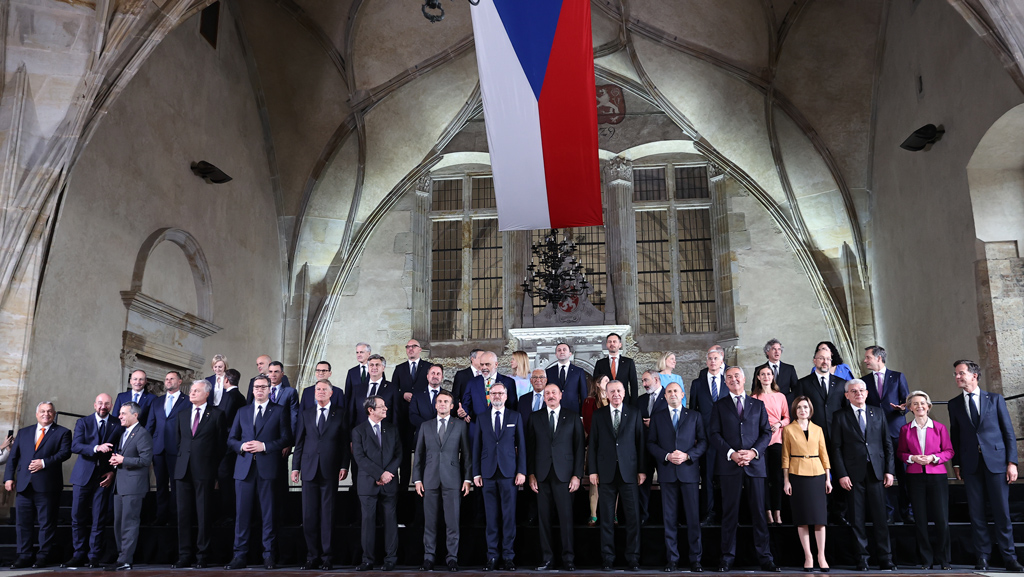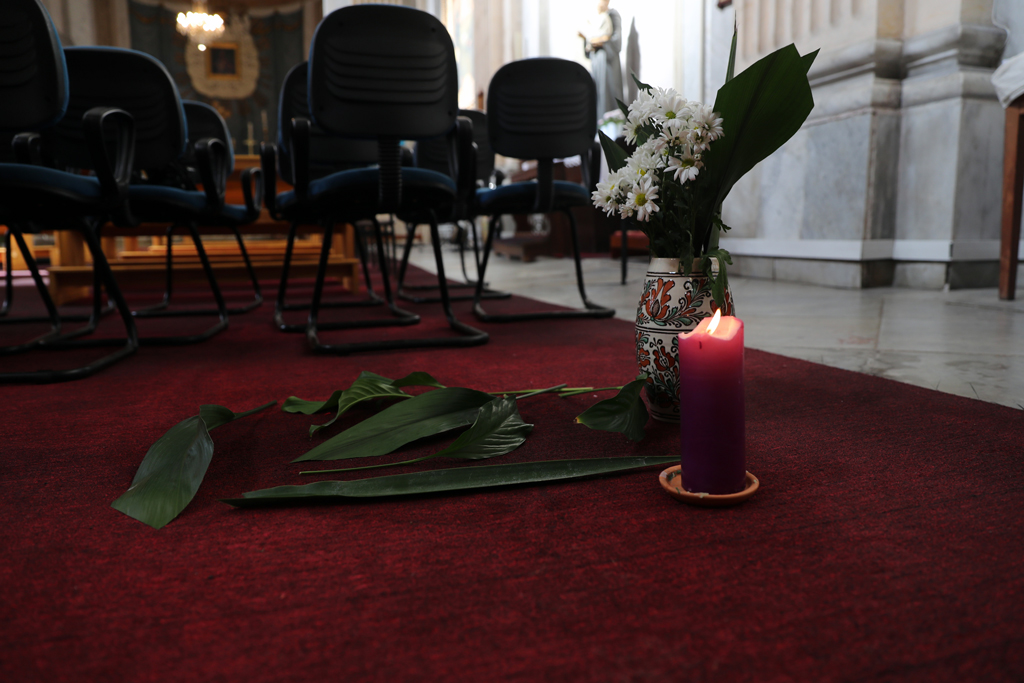French President Emmanuel Macron introduced the idea of the European Political Community in Strasbourg on May 9, 2022, and discussions on the establishment of the Community soon commenced. The Russian invasion of Ukraine sounded the security alarm on the European continent. While the European Union continues to impose sanctions against Russia, its members are looking for ways to provide stability and protect the security of Europe, which is also facing an energy crisis following the halt of Russian energy supplies. In this respect, President Macron suggested the new community also include non-EU countries. What is the purpose of the European Political Community? Is it a realistic proposal? If the Community is formed, how will the EU’s relations with other countries included in the Community be affected? Several experts presented their opinions about these questions for SETA. Prepared by Hüsna Kosif Experts Vişne Korkmaz Özgür Ünal Eriş Ferhat Pirinççi Talha Köse Magdalena Kumelska-Koniecko
 ViĹźne Korkmaz
Nişantaşı University
ViĹźne Korkmaz
Nişantaşı University
On Europe Day, President Emmanuel Macron launched a new initiative under the label of the European Political Community (EPC). The idea of having a European political space beyond the borders of the EU is not a new concept. Many experts recall former French President François Mitterrand’s proposal of the European Confederation voiced in 1989. Several strategies like the European Neighborhood Policy, the Eastern Partnership, the European Mediterranean Policy, the Union for the Mediterranean, etc. have been developed for creating partnerships with states outside of the EU. Likewise, the accession process is ongoing for the Western Balkans and Türkiye, but all these efforts – some of which provide “everything but institution” – have not satisfied non-EU partners’ aspirations to have deeper, intensified, undisrupted, clear, and equal relations with Brussels. However, in light of the current events, a European political identity beyond the EU’s institutional framework is urgently needed for a number of reasons.
Ukraine, Georgia, and Moldova have applied for EU membership. These states are the battlegrounds of the ongoing and potentially strategic competition between the Russian Federation and the West. Although these states, particularly Ukraine, hope for fast-track admission processes, EU officials keep warning that the process will take years or decades – even for Ukraine. Besides providing a fast-track EU membership option to Ukraine may create problems. For example, there is the complication of Art 47-2 of the Treaty of EU (TEU) – the defense clause – since Ukraine’s territorial integrity is already in jeopardy. Also, the Western Balkan states continue to have membership profiles despite no clear-cut calendar for their processes, and Türkiye has candidacy status despite the EU path of Ankara being seemingly unrealistic. Therefore, bypassing the Western Balkans and Türkiye may create inconsistency in the EU’s expansion strategy and its external relations. Under these circumstances, Brussels has had to come up with a third path apart from rejecting the applications or providing a special admission option. Macron’s EPC proposal seems to be appropriate for this third route. By stressing the “political community” aspect, the EU supporters of the EPC can strengthen their relations with the states invited to the first meeting, sharing in “Europeanness” even if they are not part of the EU’s institutional framework. This step is also important because the EU has been accused of being too bureaucratic, too complex, too ideological/normative, and too slow to design a coherent partnership strategy with non-EU states, especially during crises like those being faced today.
However, the EPC is already facing criticism, mainly because of two reasons. First, states that have membership prospects will not settle for anything less than EU membership. Hence it is not surprising to see that states from the Western Balkans and Türkiye have already underlined that the EPC is not an alternative to EU membership. Second, some have been left wondering what is new about the EPC. The EU and European countries have various overlapping strategies of partnership for the EU’s external relations and with the EPC, Brussels seems to just be adding one more initiative to the already long list of interlocking programs. Some argue that the EU has no unified foreign and security policy. Although EU members succeeded in agreeing on sanctions against Russia and adopted a pro-Ukraine stance, the EU had to extend some exemptions to some members, and still, there are divergencies among the member states about European values, immigration policies, and how to deal with Moscow. Also, some experts believe the EPC will reflect differences among the member states and will not produce a coherent stance. Some also criticize the EPC as Macron’s new “big project” and another cover for Paris’s desire for strategic autonomy. Though this criticism has some merit, I think because of the need for cooperation and Brussels’ own desire to be a strategic player beyond its borders, the EPC represents a window of opportunity for the EU to revise its relations with the strategic players beyond the EU borders – especially non-EU NATO partners.
The Strategic Compass (SC), the strategic vision of the EU, illustrates that the interest area of the EU is quite extensive and covers from the Arctic to Africa, from the Pacific to the Gulf. Brussels acknowledges that it needs partners, partnerships, and cooperative schemes to deal with the risks and opportunities that the Europeans face in this broad area of interest. Besides the negative ramifications of the Ukraine war, the energy crisis especially, has accelerated the need of having access and partnerships with alternative energy producers and transfer countries. Therefore, the EPC can be accepted as a political and psychological extension of the general vision drawn by the SC. In the SC, special attention was given to NATO, and many believe that the EPC can be a suitable tool to alter the EU’s attitude toward two important non-EU but NATO members, the UK and Türkiye, by positioning London and Ankara in the EU’s orbit.
It could be a window of opportunity for both Brussels and Ankara. The EPC – if it works as a regular and effective dialogue and coordination platform – could function as a confidence-building mechanism between Türkiye and the EU. Though it is not an alternative to membership, Ankara has always favored functional cooperation with the interested parties, especially if the cooperation is beneficial and if it has the potential to strengthen mutual relations between Ankara and its partners. For Brussels and some EU members, like France, the EPC can be a stepping stone for normalizing their relations with Ankara and controlling the level of competition between themselves and Türkiye in the neighboring areas. Besides, these types of multilateral frameworks fit in Ankara’s multilateral diversified diplomacy.
Back to top Ă–zgĂĽr Ăśnal EriĹź
29 Mayıs University
The European Political Community (EPC) proposed by French President Emmanuel Macron in May 2022 actually bears a striking resemblance to a proposal made by former French President Francois Mitterrand in 1989 as the Cold War was ending. At that time Mitterrand was proposing a European Confederation to unite Europe to deal with Cold War challenges. He failed to implement this project and it still remains to be seen whether another French president’s idea of uniting Europe in the midst of Russia-Ukraine war will prevail and succeed.
To dismiss the criticism brought against his proposal, Macron clarified that the EPC is not going to be an alternative to enlargement, but it will bring together all the countries on the European continent, whether on the periphery or at the core, to discuss and cooperate on issues of common concern such as security and defense, energy, and migration. Cooperation with all countries is needed to guarantee the security of the EU member states and enlargement is a lengthy and slow process to provide that security.
As long as the EU keeps the doors open to countries aspiring for membership such as Macedonia, Albania, TĂĽrkiye, and even Ukraine and Georgia, this platform has potential to bear fruit for providing security on the European continent. It is a fact that an unreformed EU after enlargement would be a hopelessly fragmented executive branch with veto rights, unable to maintain security in this time of uncertainty. The EPC looks like a substantial effort to overcome this problem. But it should come up with a more clearly defined mission with ambitious goals and a long-term timetable to be regarded as successful and promising. The summit in Prague on October 6 had the potential to offer that outcome.
In the geo-political atmosphere surrounding the Ukraine-Russia war, Türkiye’s strategic location and value as an ally for the EU became more underlined and substantial. Therefore, it is not surprising that it will be one of the important members of the EPC initiative. However, we should not forget that Türkiye has been negotiating for full membership since 2005. It has met with numerous obstructions and frustrations along the way, but this is not a good time to blame each other for the misgivings toward Türkiye’s full membership. Both the EU and Türkiye should use this platform to understand each other and show their willingness to cooperate more on issues related to each other’s security. I hope this new platform will be a useful and productive way to consolidate Türkiye’s place as a future member of the EU and increase mutual understanding and cooperation on shared values.
Back to top
Ă–zgĂĽr Ăśnal EriĹź
29 Mayıs University
The European Political Community (EPC) proposed by French President Emmanuel Macron in May 2022 actually bears a striking resemblance to a proposal made by former French President Francois Mitterrand in 1989 as the Cold War was ending. At that time Mitterrand was proposing a European Confederation to unite Europe to deal with Cold War challenges. He failed to implement this project and it still remains to be seen whether another French president’s idea of uniting Europe in the midst of Russia-Ukraine war will prevail and succeed.
To dismiss the criticism brought against his proposal, Macron clarified that the EPC is not going to be an alternative to enlargement, but it will bring together all the countries on the European continent, whether on the periphery or at the core, to discuss and cooperate on issues of common concern such as security and defense, energy, and migration. Cooperation with all countries is needed to guarantee the security of the EU member states and enlargement is a lengthy and slow process to provide that security.
As long as the EU keeps the doors open to countries aspiring for membership such as Macedonia, Albania, TĂĽrkiye, and even Ukraine and Georgia, this platform has potential to bear fruit for providing security on the European continent. It is a fact that an unreformed EU after enlargement would be a hopelessly fragmented executive branch with veto rights, unable to maintain security in this time of uncertainty. The EPC looks like a substantial effort to overcome this problem. But it should come up with a more clearly defined mission with ambitious goals and a long-term timetable to be regarded as successful and promising. The summit in Prague on October 6 had the potential to offer that outcome.
In the geo-political atmosphere surrounding the Ukraine-Russia war, Türkiye’s strategic location and value as an ally for the EU became more underlined and substantial. Therefore, it is not surprising that it will be one of the important members of the EPC initiative. However, we should not forget that Türkiye has been negotiating for full membership since 2005. It has met with numerous obstructions and frustrations along the way, but this is not a good time to blame each other for the misgivings toward Türkiye’s full membership. Both the EU and Türkiye should use this platform to understand each other and show their willingness to cooperate more on issues related to each other’s security. I hope this new platform will be a useful and productive way to consolidate Türkiye’s place as a future member of the EU and increase mutual understanding and cooperation on shared values.
Back to top
SETA Foundation Regarding the first question, I think the mean aim of the foundation of the European Political Community is to create an alternative platform that is more comprehensive than others. When the timing and context of the European Political Community are considered, a few questions and concerns come to mind. Clearly, the urgent issue of Russian aggression and the Russian invasion of Ukraine requires that all parties act together or should at least coordinate to balance or overcome the challenges of the current crisis of the invasion. However, the main question is whether it is a realistic initiative or not. My short answer is that it is unrealistic, and whether the initiative is feasible or will bear fruit depends on several factors. First, the main problem is: Who will lead the process? I mean, will a specific country, for instance France, dominate the process? If so, will the country in charge insert its agenda into the mechanism? The second problem revolves around the aims of the participants. Will the participants think the same way as the inviters or as the coordinators or are they just participating because of the bandwagoning effect? In alliances or mechanisms like this, parties need to have a common ground, be it a common threat or shared interests. In this instance, yes, they do have common interests. Having said that, one of the main problems here will be the cost. Taking action may be costly, so this will directly affect the effectiveness of the new community. Mechanisms like the European Political Community can be easily launched, but I have a lot of doubts about its effectiveness. Another issue is if the European Political Community is founded, how will the European Union-Türkiye relations be affected? Actually, I do not think that European Political Community will be considered a substitution or an alternative to the European Union for Türkiye. And I think it is the same for most of the EU member states. Yes, there is some criticism or objections regarding it being seen as an alternative for membership or an attempt to slow down the accession/enlargement process but we'll see how the leading actor, predominantly France I mean, will evaluate the situation. Either way, there is a slow, almost frozen accession period for Türkiye-EU relations and I do not think the new initiative will directly affect the ties. Back to top
Back to top
Back to top

